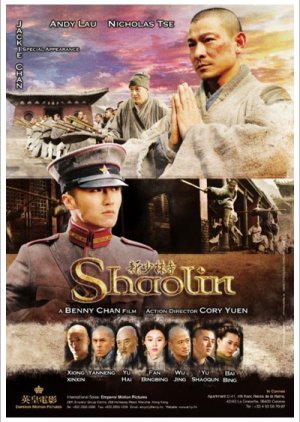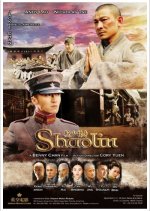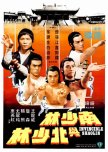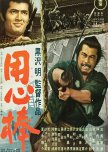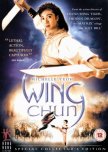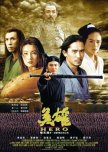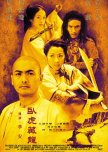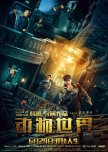Set during the early years of the Chinese republic, when feuding warlords waged constant wars to expand their power, young army leader Hao Jie and his sworn brother Huo Lung find little resistance invading the township of Dengfeng. The nearby Shaolin Temple opens its doors to the wounded and disciples Jing Neng, Jing Kong and Jing become masked Robin Hoods at night to help the poor. The young and arrogant Hao Jie then challenges the Shaolin masters when he learns they are helping his enemies. Hao Jie wins his duel and becomes even more arrogant. Nevertheless, the mighty Hao Jie experiences a swift and sudden fall, when he is betrayed by Huo Lung and finds himself at the doorsteps of the Shaolin Temple seeking help. While recuperating, Hao Jie learns the Shaolin style of martial arts and begins to find inner peace. An epic battle then awaits when Huo Lung attacks the Shaolin Temple. Edit Translation
- English
- magyar / magyar nyelv
- dansk
- Norsk
- Native Title: 新少林寺
- Also Known As: Xin Shao Lin Si , The New Shaolin Temple
- Screenwriter: Eddie Cheung, Gordon Lam, Cheung Tan
- Director: Benny Chan
- Genres: Action, Historical, Drama, Martial Arts
Where to Watch Shaolin
Cast & Credits
- Nicholas Tse Main Role
- Yu Shao QunJing HaiSupport Role
- Xing YuChing KungSupport Role
- Michelle BaiTian ErSupport Role
- Jackie ChanWu Dao [Cook]Support Role
Reviews

Focusing on fallen warlord Hou Jie, the film turns its lens on this era. But more than a mere period piece or war film, Shaolin stands apart with its message uniquely infused with teachings of Buddhism. Concepts of karma and interconnection, love conquering hatred, peace trumping war, the importance of redemption and compassion, are enfolded by the story. Subtle symmetries are worked into the events of the plot, leaving the viewer much to feel and consider. My only issue would be that many characters seem more like symbols than actual people. However, this is forgivable in light of what they are meant to represent (and because one often ends up caring for them either way).
For those concerned about martial arts, they are more than present. Shaolin takes care to balance gentler sequences with ample action, showcasing weighty and finely-choreographed fights. You won't see slow motion or "wire-fu" here -- well, rather sparing amounts of the latter.
Andy Lau performs to the lofty standard assured by his name. For Shaolin to work as intended, whomever played Hou Jie needed to portray various elements believably. From the ruthless yet fatherly leader to a broken man seeking forgiveness and transformation -- Lau rises to the task, striking every chord. On the other hand, we have Nicholas Tse as duplicitous subordinate Cao Man. Cutting a dashing figure in his military uniform, this is an actor who brings power to a role much less developed than that of the lead. Though it should be easy to hate his villain, Tse effortlessly draws understanding (and better yet, the eye of the viewer) toward Cao Man.
Jackie Chan also appears in adorable cameo as the cooking monk, Wu Dao. His is a more than welcome guest appearance, delicate in inclusion yet still notable.
The best component of Shaolin might be its music. Gorgeous, sweeping orchestrations elevate each instance in which they're played. Most memorable among these auditory pleasures is the collaboration between composer Nicholas Errèra and Andy Lau: vocal "Wu (Enlightenment)". With a prayer-like intonation and the thoughtful lyrics penned by the actor himself, it is a song likely to stay with the viewer long after the film has ended.

it was based on an actual event where a Shaolin temple was burned in 1982, acting was incredible, many lessons taught through this movie along with its amazing fights.
This is a movie of reality, no happy ending.

